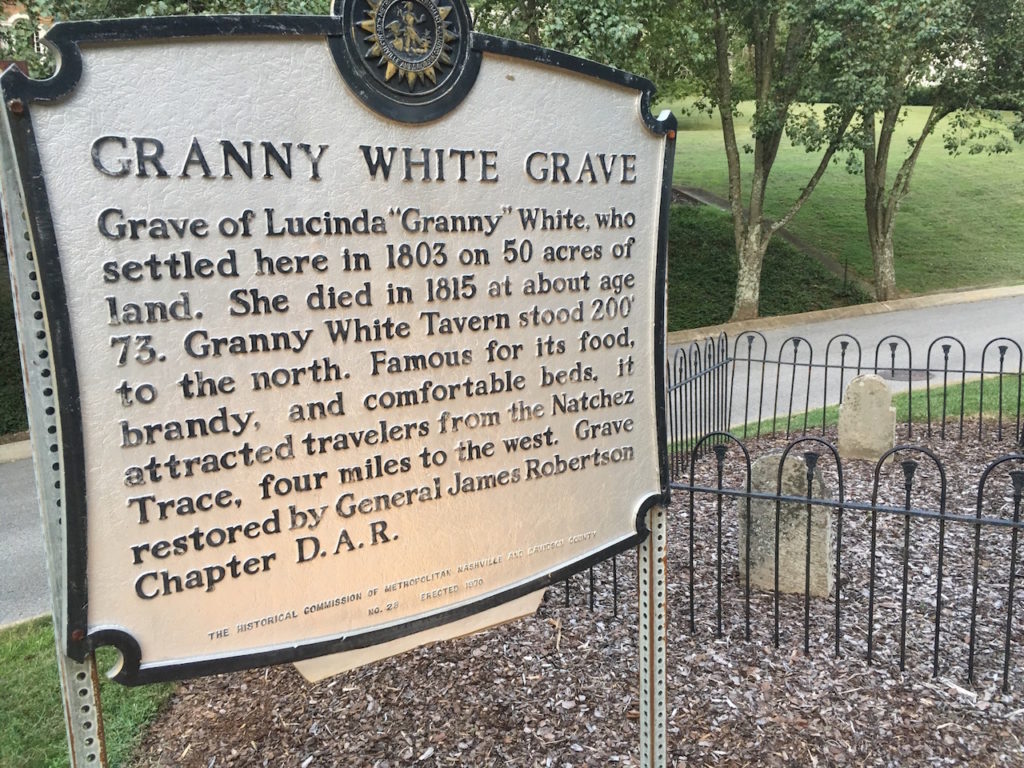
Even an odd street name like “Granny White” fades into the background for anyone who regularly drives the shady two-lane road to Brentwood. But a few listeners have submitted Curious Nashville questions about it, like this one:
Was Granny White Pike named for a real woman? Who was she? When and where did she live?
Yes, Granny White was a real person. That we know. You can visit her grave, which is just off the pike that bears her name. And that grave is just a stone’s throw from the inn and tavern that was part of her rags-to-riches story.
The details of that story are a little harder to pin down. People have been curious about this mysterious figure for decades. A Nashville newcomer wrote in to the Tennessean back in 1972, asking for some explanation.
Lucinda “Granny” White was a widow from North Carolina who traversed the mountains to get to the Tennessee frontier in 1800. An interview from 1937 with a direct descendant says she made the journey with an ox, one slave, a spinning wheel and two grandchildren she rescued from an orphan life.
She stopped first near Knoxville and then continued to south of Nashville, where she was basically given 40 or 50 acres by a man named Thomas McCrory. There’s a deed in the University of Tennessee Special Collections that is dated 1803. Her story is part of the congressional record because U.S. Senator Thomas Benton, who was apparently a friend, referenced Granny White in debates over whether land should be given to the poor as a method of social security and economic development.
“With the advantage of a little piece of ground that was her own, this aged widow with two little grand children of eight and nine years old advanced herself to comparative wealth,” Benton said.
She achieved unheard of status for frontier women by starting this tavern and inn. Her hillside plot on what was known as Hollow Tree Gap (named for a prominent hollow tree) was a good waypoint for Nashville lawyers traveling back and forth to the Franklin courthouse. Sam Houston, Andrew Jackson, John Bell and James K. Polk were all said to have spent the night and enjoyed food and drink. Especially the drinks. She was known for an “apple jack” cider, pressed from her own orchard. Apple and peach brandy were also Granny White’s specialties.
White died in 1815 or 1816, depending on whether one trusts a historical marker or her actual headstone, which appears to say “1816” with the initials “LW.”
The tavern didn’t survive long, but a log cabin on the property did. Parts of it were incorporated into a rebuilt cabin in Cheatham County in 1985. That’s when developers started work on 43 one-acre homes that still remind passers-by of the site’s history. The subdivision’s name is a not-so subtle homage — The Inns of Granny White.



